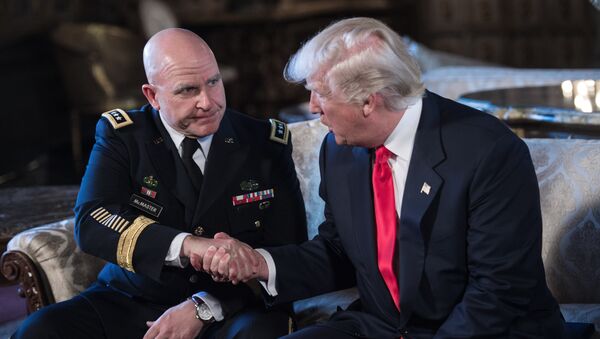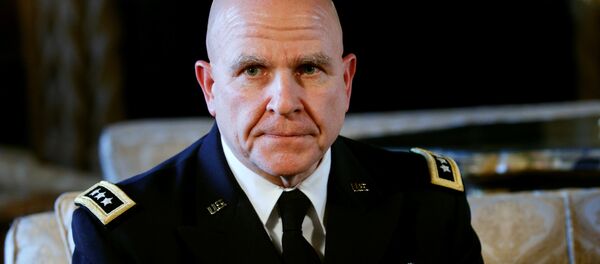WASHINGTON (Sputnik) — Trump announced earlier this week that Lt. Gen. Herbert McMaster would succeed Michael Flynn as national security advisor. Flynn was forced to resign over failing to disclose full details of a conversation he had with Russian officials.
“Today, McMaster is part of the ‘COIN’ [counterinsurgency] mob and… has perpetrated the lie that COIN worked and that the surge succeeded in Iraq, although even its main propagandist [US journalist] Tom Ricks, admitted in public when challenged that the surge failed,” US military historian Todd Pierce explained.
McMaster, Pierce added, has also worked with neoconservative think tanks such as the Foreign Policy Initiative (FPI) and Project for a New American Century to promote military aggression against Russia.
Two of the four directors of FPI are neoconservatives William Kristol and Robert Kagan, the husband of former Assistant Secretary of State Victoria Nuland who was monitored in a secret phone conversation plotting to topple the government of Ukraine in 2014, Pierce noted.
Trump’s new security advisor also argued in his book that White House officials should have deferred to military leaders like US General Curtis LeMay who supported using nuclear bombs in Vietnam, Pierce claimed.
Former Canadian diplomat Patrick Armstrong told Sputnik that Trump has proven that he will keep advisors like McMaster on a short lease and may terminate him for any major miscalculations.
“But Trump is the boss and he's good at firing people. Indeed the really good bosses hire the best they can and fire away until they get an even better team,” Armstrong suggested. “And I'll bet that Flynn will be back in some job.”
First deputy chairman of Russia's Federation Council Committee on Defense and Security Franz Klintsevich told Sputnik on Tuesday that McMaster’s appointment as Trump’s national security adviser poses a significant threat to Russia.
US Secretary of Defense James Mattis welcomed Trump’s decision, claiming he had great respect for McMaster’s strategic perspective, intellectual rigor, and managerial discipline.


